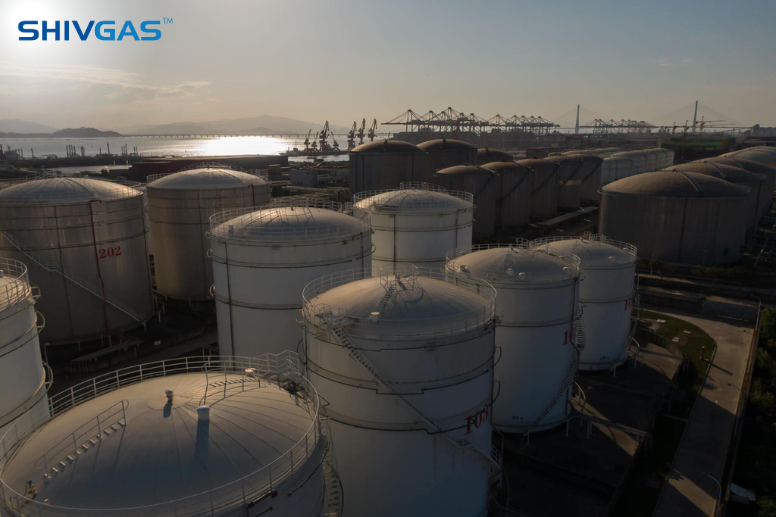
LPG has conveniently entered in residential, industrial and commercial sectors. This versatile fuel has high calorific value and has no residual burning making it a reliable fuel in the HoReCa sector, laundry business, metal melting, agriculture sector and many other sectors. As the application of LPG continues to grow in commercial and especially in the industrial sector where LPG is used with other flammable gases it has become utterly important that we put major concern in safe handling and storage of LPG cylinders.
LPG gas dealerships and agencies uphold high safety standards when it comes to the storage and handling of LPG cylinders. These regulations are provided by PESO (Petroleum and Explosive Safety Organisation) to ensure safety while storing LPG in any space. SHIVGAS with its network of LPG gas companies is maintaining a high standard of safety with the associated customers in different segments, i.e., industrial, commercial and household. So, here we have integrated the pointers that must be kept in mind while handling, storing and managing LPG gas.
Let’s get into general safety precautions for LPG
As per the rules of storing any explosive or flammable gas, without a proper permit, any individual or industry is not allowed to keep more than 100 kg of LPG for distribution and sale.
To make it easier for transportation and handling LPG cylinders it is a must that any dealership/commercial or industrial institution making storage rooms should construct a well-ventilated, has proper roofing and must be a minimum of 1 meter elevated from the ground. The storage unit should be in an isolated space and protected from direct sunlight.
If gas leakage is detected, it must be handled promptly, for which identification of the cylinder from which gas is leaking and clearing out the rest cylinder is of priority. For this, the cylinders should not be stored in the egress and exit routes.
To ensure the cylinders are not in contact with any flammable item or is not in contact with moisture, you must keep the area free of litter. Any chemical, salts and harmful substances should not be kept close to the storage unit.
In industries there are many gas pipelines spread across different locations, these pipelines pose a threat as any leakage from any of the gasses can cause a catastrophic impact. For, industries which have steam pipes and gas pipes connected, you must make sure the storage unit is located at a substantial distance from LPG gas storage.
LPG stands for Liquified Petroleum Gas, which means in the cylinder the gas is in the liquified form. When kept horizontally, it poses the risk of overflow which can lead to leakage of gas from the valve. When storing LPG or even transporting it, the cylinders must be kept in an upright position.
Establishments that are reliant on LPG gas such as restaurants, poultry farms, agriculture, metal processing industries, plastic manufacturing industries and many more need to understand how they can handle cylinders bought in bulk. LPG gas dealerships do help in safety training and handling, and here are a few pointers which are worth noting if you are handling cylinders in bulk.
Whether you store and handle LPG in your LPG gas dealership, or are a consumer and store in a commercial and industrial location, it is important to have a few safety pointers during handling.
The use of LPG cylinders is going to grow in the upcoming years. As LPG is highly flammable, understanding the storage, handling and maintenance helps in ensuring safety standards. At SHIVGAS, we ensure the highest metrics of safety in our bottling plant and also ensure any LPG gas dealership associated with us upholds storage and handling guidelines set by SHIVGAS.
Are you looking to start an LPG gas dealership? Then, apply for a dealership through our website, as we are offering a franchise opportunity.
Comment (0)